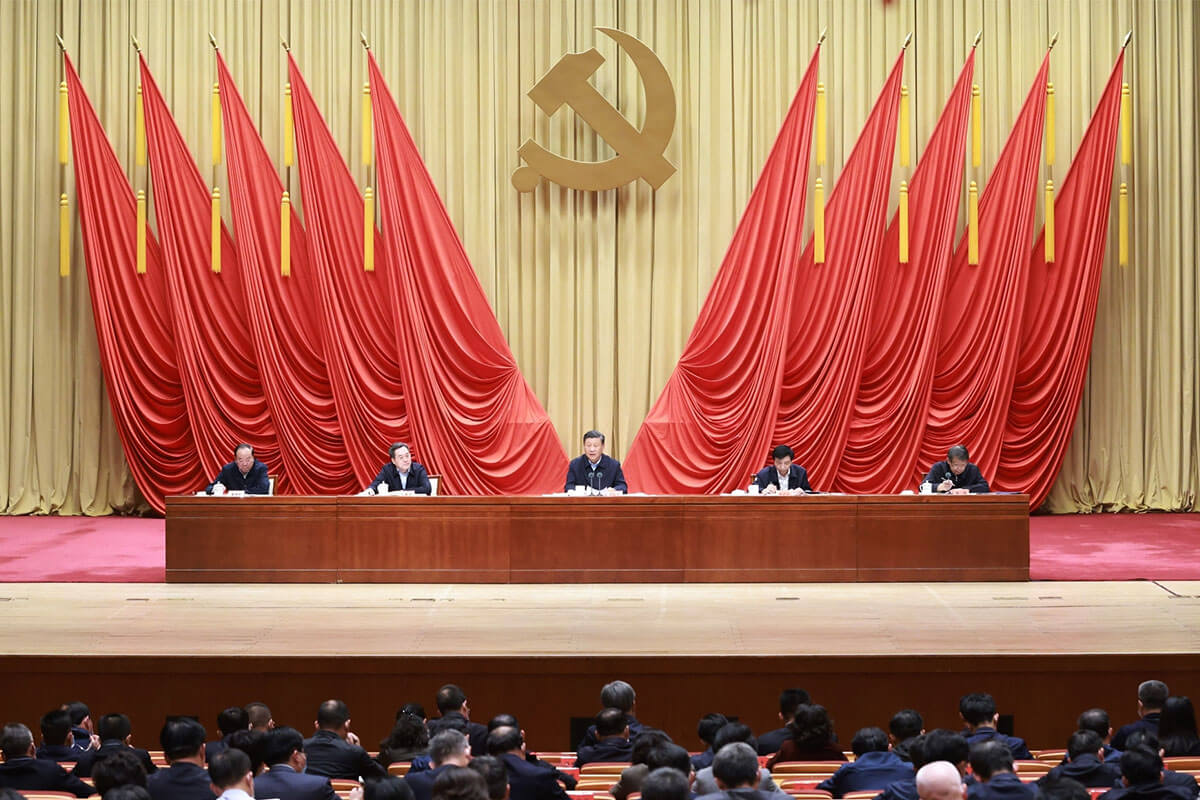The Chinese Communist Party (CCP) opened its sixth plenary session on Monday. The behind closed doors meeting is being attended by almost 400 political elites and is expected to strengthen President Xi Jinping’s bid for his third term in power.
During the four day meeting, which is being held in Beijing from November 8 to 11, major achievements and historical experience of the party over the last 100 years will be reviewed. Xi, who is also the CCP Central Committee’s general secretary, presided over the meeting.
Although the meeting’s agenda is top secret and a communiqué of discussions and resolutions will be released only after it has finished, experts quoted by Chinese state-owned media Global Times said that the sixth plenary session “usually focuses on ideology, Party building and the Party’s style of work.”
A key, unspecified resolution is also expected to be reviewed at the session, which is only the third in the party’s history. The resolution will set the stage for the 20th National Party Congress next year, reflect on key events in party history, cement Xi’s role as leader, and set a course for the next few decades.
State news agency Xinhua reported that Xi opened the plenum by presenting a work report on behalf of the political bureau of the party’s central committee and “explanations on a draft resolution on the major achievements and historical experience” of the party in its 100-year history.
In addition, Xi also presided over a symposium that was attended by members from the central committees of the non-CCP political parties, the head of the All-China Federation of Industry and Commerce, and individuals with no party affiliation.
The ongoing plenum is the penultimate and among the most significant meetings in China’s five-year political cycle. It also sets the stage for next year’s party congress, where Xi is expected to rally for a third term as leader of the CCP after having previously abolished term limits in 2018.
Ahead of this twice-a-decade summit, Xinhua described Xi as “a man who inherited a legacy but dares to innovate, and a man who has forward-looking vision and is committed to working tirelessly.” “On the new journey, Xi is undoubtedly the core figure in charting the course of history,” it said.
Since assuming power in 2012, Xi has steadily consolidated power. In 2016, he was named “core leader,” a title that has previously only been conferred on Mao Zedong, Deng Xiaoping, and Jiang Zemin. Xi’s political ideology, Xi Jinping Thought, was also enshrined in the party’s charter in 2017, putting him at least on par with Mao and Deng in terms of the legacy he will leave.

